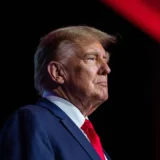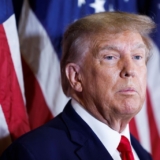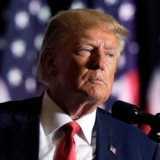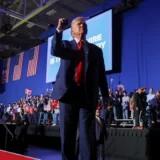Trump Media’s Legal Saga—A Battle for Truth Social
In the latest chapter of the ongoing saga surrounding Trump Media and Technology Group (TMTG), the former president’s social media venture finds itself embroiled in a legal skirmish with two of its co-founders. TMTG, the brainchild of Donald Trump, recently initiated a lawsuit in a Florida court against Wesley Moss and Andrew Litinsky, former contestants on the reality TV show “The Apprentice.” At the heart of the dispute lies an agreement outlining stock ownership, which the company contends is now void.
The lawsuit, filedlast month, alleges that the agreement between the co-founders and Donald Trump himself—presumably forged during the nascent stages of the company’s formation—is no longer valid. This contention sets the stage for what promises to be a contentious legal battle, with implications reaching far beyond the confines of a courtroom.
At its core, this legal dispute raises crucial questions about accountability, transparency, and the integrity of business dealings—themes that have long been intertwined with the brand. For a company founded on the principles of truth and media integrity, the optics of such a legal fracas are less than ideal, to say the least.
While the specifics of the lawsuit remain shrouded in legal jargon and procedural intricacies, the broader implications are impossible to ignore. The company’s image, already marred by controversies and setbacks, risks further erosion in the court of public opinion. In an era defined by heightened scrutiny of media platforms and their role in shaping public discourse, any hint of impropriety or internal strife threatens to undermine the credibility of the entire enterprise.
Moreover, the timing of this legal showdown couldn’t be more precarious. As it endeavors to carve out its niche in the fiercely competitive social media landscape, distractions of this nature only serve to detract from its overarching mission. At a time when digital platforms face mounting pressure to address issues of misinformation, online harassment, and political polarization, the last thing it needs is to become embroiled in legal wrangling that detracts from its stated objectives.
In the court of public opinion, perception often trumps reality. Regardless of the eventual outcome of this legal battle, the damage to its reputation may prove difficult to repair. For a company seeking to establish itself as a bastion of truth and free expression in an increasingly polarized digital landscape, allegations of internal discord and legal disputes strike at the very core of its credibility.
As the legal proceedings unfold, one thing remains certain: the stakes are high, not just for the media organization and its co-founders, but for the broader conversation surrounding media integrity and corporate accountability. In the pursuit of truth, transparency, and justice, the courtroom drama playing out in Florida may well serve as a litmus test for the future of its place in the evolving media landscape.






